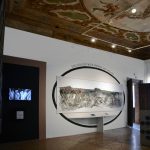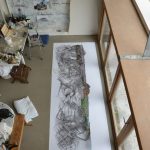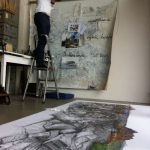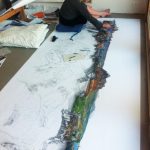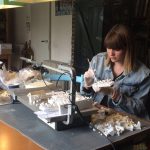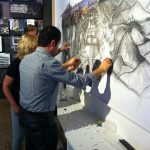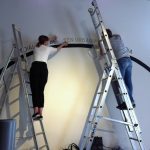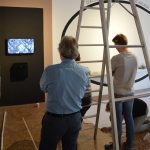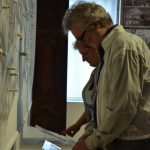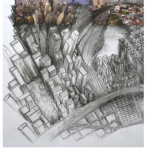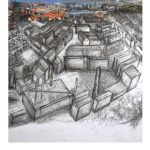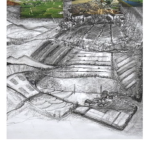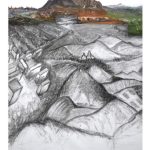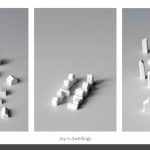
Project Information
- Commission invitation
- Commissionar Global Art Affairs Foundation La biennale di Venezia
- Building company Min2 bouw-kunst
- Realisation 2016
- Adress Palazzo Mora, Strada Nova, 3659, 30121 Venezia VE, Italië
Biennale architettura Venice 2016
Dialogue between Urbania and Arcadia
During the exhibition, we shared our thoughts upon contemporary way(s) of living. Interacting with the visitors through a journey; visualizing an imaginary range of landscapes, illustrated on a four meter wide canvas as being a piece of art, while projecting our thoughts through sketches, images and models. Supported by a soundscape of different sceneries and statements of people connected with the Urbania and Arcadia dialogue. Additionally we invite the spectator to join us in the dialogue, through an interactive application, which will become a shared database.
Time:
Time dilation is a difference of elapsed time between two events. We see this as the friction or movement between Arcadia and Urbania.While observing present-day’s social developments, we hypothesize that the main challenges are the increasingly demand for, affordable single-person housing, the demand for shared and communal-housing typologies and the specific housing needs for the influx of refugees.
Space:
Within Urbania and Arcadia, we explore multiple housing concepts projected upon subtle locations, while looking beyond the actual borders of the contemporary. In cities e.g. the in-between places, temporary locations and abandoned buildings. In nature, where the presence of people enhances the environment. In abandoned villages and devastated areas, which could become the place for new forms of contemporary living. For the housing concept, archetypical shapes are used, these are perceived to be globally readable through their symbolistic, primal appearance. The houses have a small footprint whereby the exterior communicates with the context, the surrounding community is addressed by use of local products and craftsmanship.
Existence:
While Arcadia is the place for harmonized balance, Urbania is the realm where self-reflection is limited due to an immersive input from one’s surroundings. Through setting up the dialogue between these two opposites, we analyze the different qualities of the build environment within and between these realms, which is essential to the quality of life. We sense that an understanding of humanistic needs from either; cultural, contextual or a sociological perspective, is the starting point to find a practical answer for vulnerable groups of people, the vitalization of subtle and abandoned place, answering to Alejandro Aravena’s “reporting from the front”
Team:
concept and design: Jetty and Maarten Min.
art director: Jetty Min
banner drawing: Jetty Min
banner skyline setup: Adrien Brion
banner skyline finish: Roland Drieënhuizen
banner models: Karla Surac
video:
montage/soundtrack: Adrien Brion
photographs: Roland Drieënhuizen
interactive website:
designed by: Jetty Min
design elaboration: Adrien Brion
programming: Leonard Thierry
general assistance and design: Raffi Minaskan
Photographs: Min2 bouw-kunst

